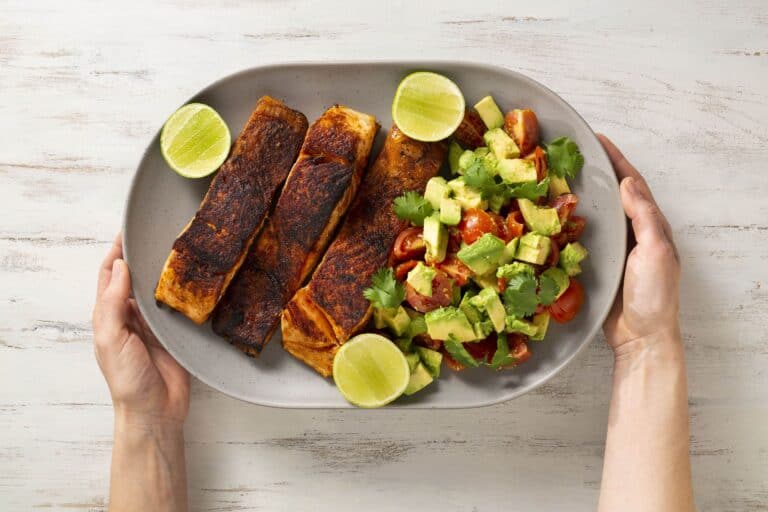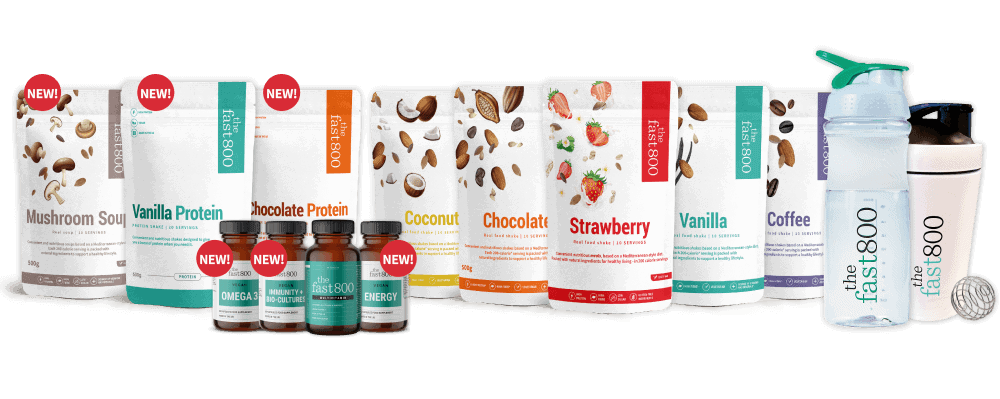Hard Candy: How To Break a Sugar Addiction Before It Breaks You
Sugar can be as addictive as cocaine.[1] Unfortunately, unless you follow a weight loss plan designed to reduce cravings, dieting can actually worsen sugar addiction. Here, we provide some advice around changing your diet to help overcome sugar cravings.
Sugar addiction is real; it signals the need to consume sugar when it is present, to crave it when it is not, and as you eat more sugar, your appetite for sugary food increases. This cycle leads to insulin resistance and weight gain and as population obesity levels continue to soar, and so does the threat to public health.
Why is sugar addictive?
From the first bite, consuming sugary food triggers a cascade of neural events that leads to a powerful urge to keep eating. Within the midbrain, pathways release dopamine, driving sugar addiction by rewarding and reinforcing consumption. The neural chains transmitting pleasure from eating sugar are the same systems activated by cocaine and heroin (mesolimbic dopamine system)[2][3] – indeed, neuroimaging has shown structural similarities between the brains of obese people and those with established hard drug addictions.[4]
Scientists have known for many years that by feeding a sugar solution to rodents, it is possible to reduce their appetite for cocaine.[5] What researchers did not know for some time, however, was whether sugar was in fact equally as addictive as cocaine. In a fascinating experiment conducted in 2007, a team at the University of Bordeaux sought to test just that. Forty-three laboratory rats were assessed, eight times each day over fifteen days, to choose between two “reward levers”. When pressed, one lever allowed them to drink a sucrose solution for twenty seconds; the other administered a small dose of intravenous cocaine.[5]
Within just two days, the rats showed a marked preference for the sugar solution. As the days passed, they also showed a greater willingness to opt for the sugar lever even in the presence of a greater “reward price” (sugar released only after multiple lever-presses), and in the presence of delayed release. Intriguingly, the same experiment conducted with a solution of saccharine (an artificial sweetener) rather than sugar yielded the same results, which suggests that sugar addiction results from the detection of sweet-tasting food, rather than from ingestion of glucose itself. Having a sweet tooth, and regularly feeding it, may lead to further problems along the track including type 2 diabetes, weight gain and high blood pressure. It’s important to know your own sugar levels and seek professional advice if you’re concerned. Luckily, with lifestyle changes and a diet low in sugar and artificial sweeteners, you can manage your reliance on sugar.
A key element of sugar addiction is its ability to prompt release, within the body, of opioid substances – the same chemicals that form the active ingredients of heroin and morphine. Studies have shown that when rodents are denied sugar after a long period of dependency, they exhibit symptoms similar to opiate withdrawal, such as teeth-chattering, head tremor and forepaw shakes.[6]
Critics of such studies draw attention to the fact that when rodents are allowed to consume sugar whenever they want to (rather than within strict time-limits), they do sometimes become obese, but do not develop the markers of sugar addiction – compulsivity, preference and withdrawal – in the forms described above. Most humans, unlike lab rats, are free to eat sugar whenever they want to – and many do.
This suggests that two separate pathways may lead to sugar addiction. The first, which we might term the “forbidden fruit” effect, activates itself when sugar is available only intermittently. From an evolutionary perspective this makes good sense, as our ancestors would feast on high-calorie food in preparation for long periods of scarcity.
Why is sugar addiction problematic?
In the prehistoric setting, of course, this was not problematic – opportunities to eat sugar were far too rare for a sweet tooth to disrupt health. But in the modern era, the same compulsion drives conventional diets to fail. By locking you into a state of hunger, such regimes switch your attention towards, rather than away from, high-calorie foods. Breaking the diet becomes inevitable; sugar addiction worsens; the obesity crisis gains momentum.
The second pathway – one of growing dependency on sugary snacks in the continuous presence of junk food – might term itself the “insulin overload” effect, and comes about due to metabolic rather than to neural pathways. If we consume sugar constantly, the body has to release insulin constantly, in order to transport glucose into cell walls. Our insulin receptors are not designed to work continuously, however: in order to remain sufficiently “primed” for an insulin signal, they need downtime. Without it, they gradually become desensitised, and so cells struggle to take up glucose. This is why when you are overweight, even a regular-sized portion of sugary food fails to satisfy, driving you to eat more and more.
What can you do to overcome sugar addiction?
There are a few simple changes you can make to your lifestyle that will help combat sugar addiction:
- Always choose the full fat option – low fat generally means all the good stuff has been removed and has been replaced with sugar and nasty additives. Full fat products will keep you feeling fuller for longer.
- Stick to water. Soft drinks and fruit juices contain a large amount of sugar. If you feel like mixing it up, try sparkling water with a wedge of lemon and some cucumber or one of these ideas from our Health Coaches for non-fasting days.
- Start reading food labels more closely. There are many sources of hidden sugars and it’s important to check the label to see just how much sugar you are consuming – you may be surprised…
- Adapt your favourite desserts. Cutting out sugar doesn’t mean missing out. Follow our nutritionists tips for making desserts healthier.
- Opt for Mediterranean-style foods, naturally lower in both sugar and carbohydrates. For inspiration, look through The Fast 800 recipes which are all naturally low in sugar and high in flavour. By enriching your diet Opt for Mediterranean-style recipes, naturally lower in both sugar and carbohydrates. For inspiration, look through The Fast 800 recipes which are all naturally low in sugar and packed with flavour. By enriching your diet with good quality protein and healthy fats, you will begin to alleviate your sugar cravings and create a healthy foundation for your lifestyle. The Fast 800 Programme can help put this into fruition with meal plans and shopping lists to make sure you avoid the sugary temptations and help you stay full throughout the day, with no desire to keep checking the pantry!
Ahmed SH, Guillem K, Vandaele Y. Sugar addiction: pushing the drug-sugar analogy to the limit. Curr Opin Clin Nutr Metab Care. 2013 Jul;16(4):434-9. doi: 10.1097/MCO.0b013e328361c8b8. PMID: 23719144.
Liu WW, Bohórquez DV. The neural basis of sugar preference. Nat Rev Neurosci. 2022 Oct;23(10):584-595. doi: 10.1038/s41583-022-00613-5. Epub 2022 Jul 25. PMID: 35879409; PMCID: PMC9886228.
NIDA. 2020, June 11. How does cocaine produce its effects?. Retrieved from https://nida.nih.gov/publications/research-reports/cocaine/how-does-cocaine-produce-its-effects on 2023, August 8
Wang GJ, Volkow ND, Thanos PK, Fowler JS. Similarity between obesity and drug addiction as assessed by neurofunctional imaging: a concept review. J Addict Dis. 2004;23(3):39-53. doi: 10.1300/J069v23n03_04. PMID: 15256343.
Lenoir M, Serre F, Cantin L, Ahmed SH. Intense sweetness surpasses cocaine reward. PLoS One. 2007 Aug 1;2(8):e698. doi: 10.1371/journal.pone.0000698. PMID: 17668074; PMCID: PMC1931610.
Colantuoni C, Rada P, McCarthy J, Patten C, Avena NM, Chadeayne A, Hoebel BG. Evidence that intermittent, excessive sugar intake causes endogenous opioid dependence. Obes Res. 2002;10:478–488.










